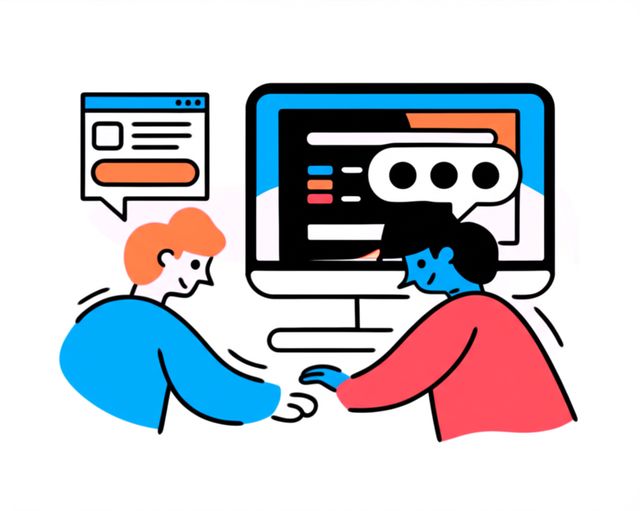Human Computer Interaction
Human-computer interaction (HCI) is the study of how people interact with computers and other digital devices. It's a multidisciplinary field that draws on psychology, sociology, computer science, and design. HCI researchers and practitioners are interested in understanding how people use computers to complete tasks, communicate, and learn. They also design and evaluate new ways to interact with computers that are more user-friendly, efficient, and enjoyable.
Why Study HCI
There are many reasons to study HCI. HCI can help you develop the skills you need to design and evaluate user interfaces for websites, software, and other digital products. HCI can also help you understand how people use computers to learn and work, which can be helpful for teachers, trainers, and other professionals who work with computers.
HCI Online Courses
There are many online courses that can help you learn about HCI. These courses cover a wide range of topics, including:
- The basics of HCI
- User interface design
- User experience research
- Accessibility
- Human factors
Online courses can be a great way to learn about HCI at your own pace and on your own schedule. They can also be a more affordable option than traditional college courses.
Careers in HCI
HCI skills are in high demand in a variety of industries. HCI professionals work in a variety of roles, including:
- User experience designers
- UX researchers
- Interaction designers
- Human factors engineers
- Accessibility specialists
HCI professionals can work in a variety of settings, including:
- Software companies
- UX design firms
- Research labs
- Government agencies
- Nonprofit organizations
Tools and Technologies
HCI professionals use a variety of tools and technologies to design and evaluate user interfaces. These tools include:
- Prototyping tools
- User research tools
- Analytics tools
- Accessibility testing tools
Benefits of Studying HCI
Studying HCI can provide you with a number of benefits, including:
- Increased understanding of how people use computers
- Improved ability to design and evaluate user interfaces
- Enhanced problem-solving skills
- Greater creativity
- Increased employability
Projects
There are many different types of projects that you can pursue to further your learning in HCI. Some examples include:
- Designing a user interface for a new website or app
- Conducting a user study to evaluate the usability of a new product
- Developing a prototype for a new interaction device
- Writing a paper on a new HCI research topic
Personality Traits and Interests
Individuals who are interested in HCI typically have the following personality traits and interests:
- Strong interest in computers and technology
- Good problem-solving skills
- Creative and innovative
- Excellent communication skills
- Empathy for users
Employer Benefits
Employers value HCI professionals because they can help them to design and develop products that are more user-friendly, efficient, and enjoyable. HCI professionals can also help employers to improve the productivity of their employees and reduce the number of customer complaints.
Online Courses and HCI
Online courses can be a great way to learn about HCI. These courses can provide you with the knowledge and skills you need to design and evaluate user interfaces, conduct user research, and develop new HCI technologies. Online courses can also help you to connect with other HCI professionals and learn about the latest trends in the field.
Are Online Courses Enough?
Online courses can be a helpful learning tool, but they are not enough to fully understand HCI. HCI is a complex field that requires a combination of theoretical knowledge and practical experience. To fully understand HCI, you will need to supplement your online learning with hands-on experience designing and evaluating user interfaces.


